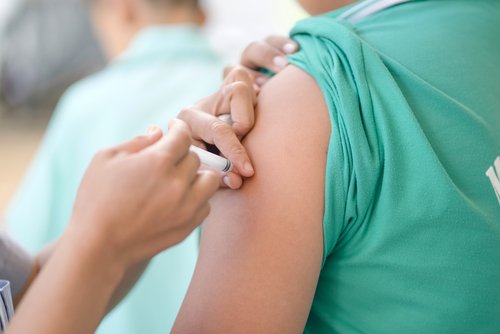London (Brussels Morning) In a public information campaign launched this year, the UK government iterated a message that immigration status should not be a barrier to getting the COVID-19 vaccine. However, the complex policy framework around immigration in the UK has sparked fears its words won’t be enough.
To aid efforts to stop the spread of the virus through COVID-19 testing and immunisation, the government released guidance for those with irregular immigration status in the UK on booking tests, vaccine appointments and on the availability of free services with regards to both.
The government pronounced this message in February this year, saying there was no risk of deportation for migrants who registered with a GP and stressed it was not necessary to provide documentation.
However, campaigners say challenges remain in getting undocumented migrants vaccinated.
“The situation in the UK is complicated because of exclusionary policies known as the hostile environment policies that have been around for more than a decade”, says Munya Radzi, founder of campaign group Regularise.
The ‘hostile environment’ refers to a set of policies introduced in 2012 by then home secretary Theresa May aimed to make life difficult for migrants living in the UK.
Access denied
These prevent undocumented migrants from accessing critical services by tasking doctors, landlords and police to check people’s immigration status.
Data collected by various bodies can also be checked by the Home Office — the government department that oversees immigration.
It is unknown how many undocumented migrants there are in the UK; however, Pew Research Centre report suggested the number was between 800,000-1.2 million in 2017 in Britain.
What became apparent when the vaccination programme was being rolled out was that undocumented immigrants were interested in accessing the vaccines, reaching out to advocacy groups such as Regularise, says Radzi, and asking if they were eligible.
Despite having lived in the UK for decades, many people would have never gone to the doctors even when feeling very unwell, he says.
The UK’s vaccination dissemination strategy relies on people registering with the GP with priority groups organised according to age and underlying illnesses.
Harder in practice
Radzi says some undocumented migrants have tried to register with a General Practicioner (GP) but were turned away, whether for lack of documents or an unwillingness to provide proof of address due to data sharing practices.
Even pre-pandemic, however, proof of address has never been a prerequisite to register with a GP, but in practice, many GP surgeries ask people for these documents for ID verification purposes, particularly as services via telephone or on line.
Due to misinformation and occurrences of GPs misapplying the rules, individuals either fear accessing services or presume they are not eligible to even primary care.
While emergency care will always be available for everyone in the UK, there is concern that migrants may be left to pick up a hefty bill down the line.
In 2019, the high profile case of Simba revealed that he was presented with a 93,000-pound bill after a life-saving operation, which he had to pay if he was to access ongoing appointments.
One positive development, however, is the emergence of pop-up clinics, particularly in London, with no ID, proof of address or NHS number required.
“Whether populations are being reached properly is another question”, says Radzi.
European landscape
The UK’s approach mirrors that in much of Europe and EU officials have said that vaccination strategies must include this group of people. There are unanswered questions and ambiguity still, however, with regards to reaching this population.
Officials in Greece have indicated, however, migrants are not a priority, despite their overwhelming vulnerability to the virus. Greece is a major gateway for migrants in Europe with limited financial resources and even more limited access to vaccines.
Italy, which also receives high migration flows, had initially failed to explicitly include migrants in its COVID-19 vaccine plans.
“It’s important that everybody, unless they’re here [in Italy] irregularly, gets vaccinated”, said Italian Commissioner on the COVID-19 crisis Domenico Arcuri, at the beginning of December last year.
Since then, however, the Italian Medication Agency stated vaccines would be available for anyone living in Italy, regardless of residence status.
Outlook
In the medium term, in the UK, Radzi says more pop-up clinics would help increase the uptake of the vaccine. For more long-term safeguards against the virus, however, he says there needs to be an end to the hostile environment policy and data sharing through strict firewalls and the charging practices that have emerged.
These are particularly important when it comes to needs down the line, he says, for instance, if immunisation top-ups or boosters are needed, as there will always be a question of whether undocumented migrants will be able to access them.




